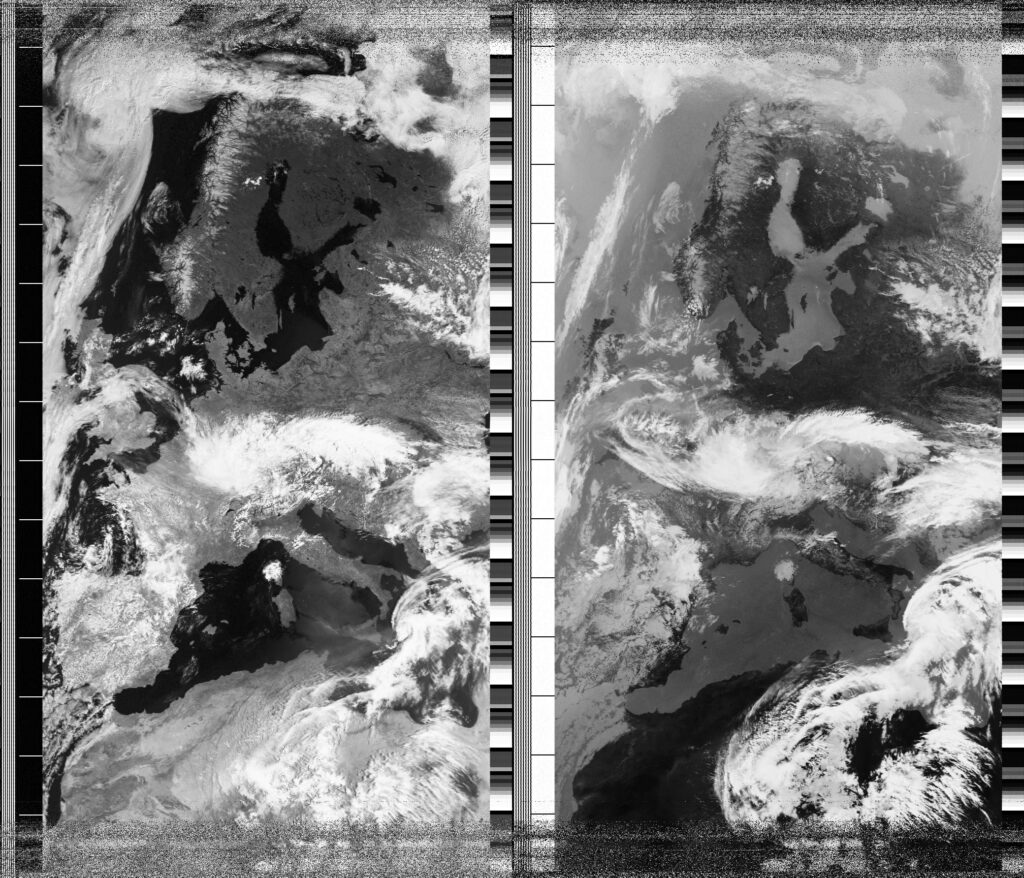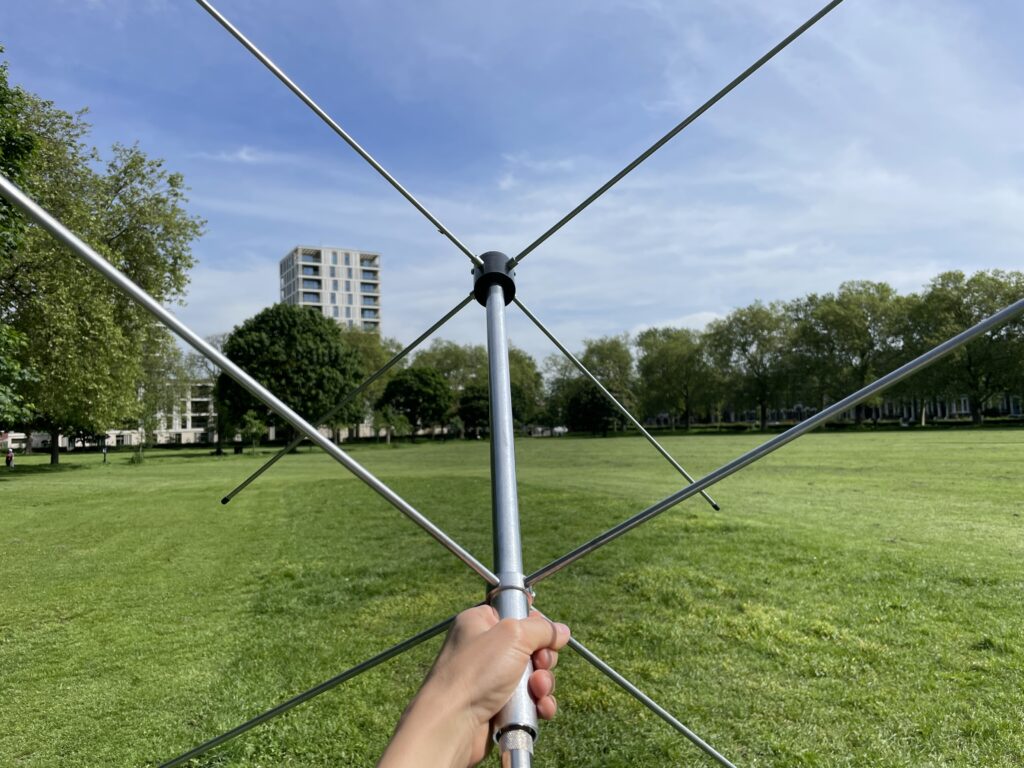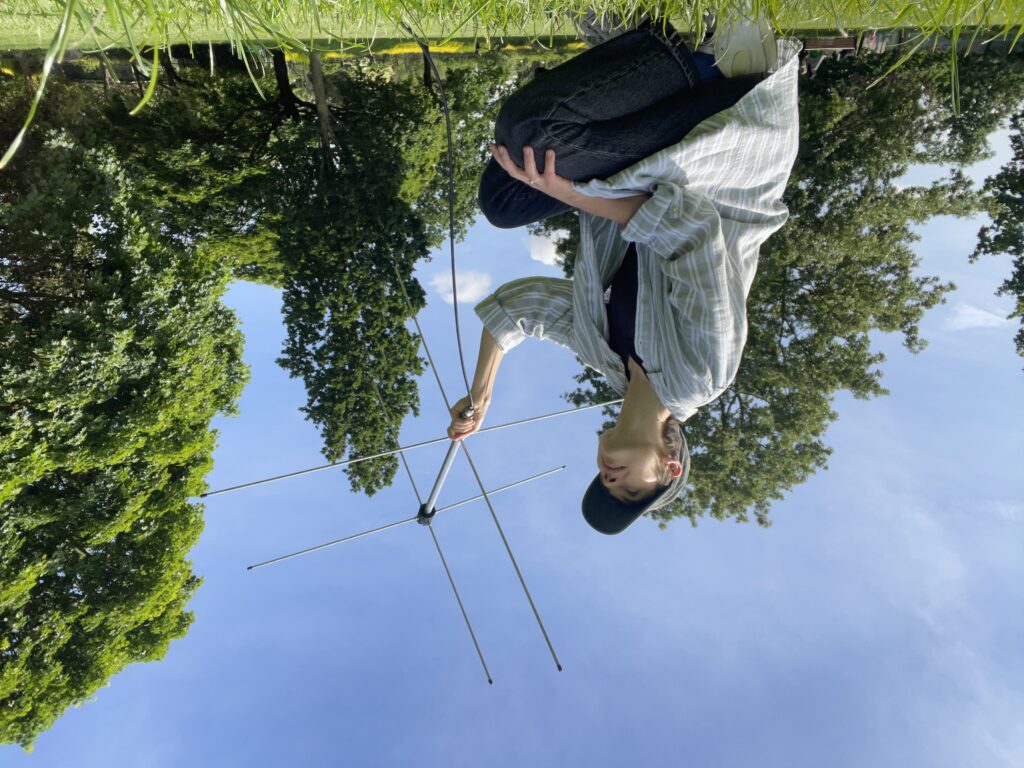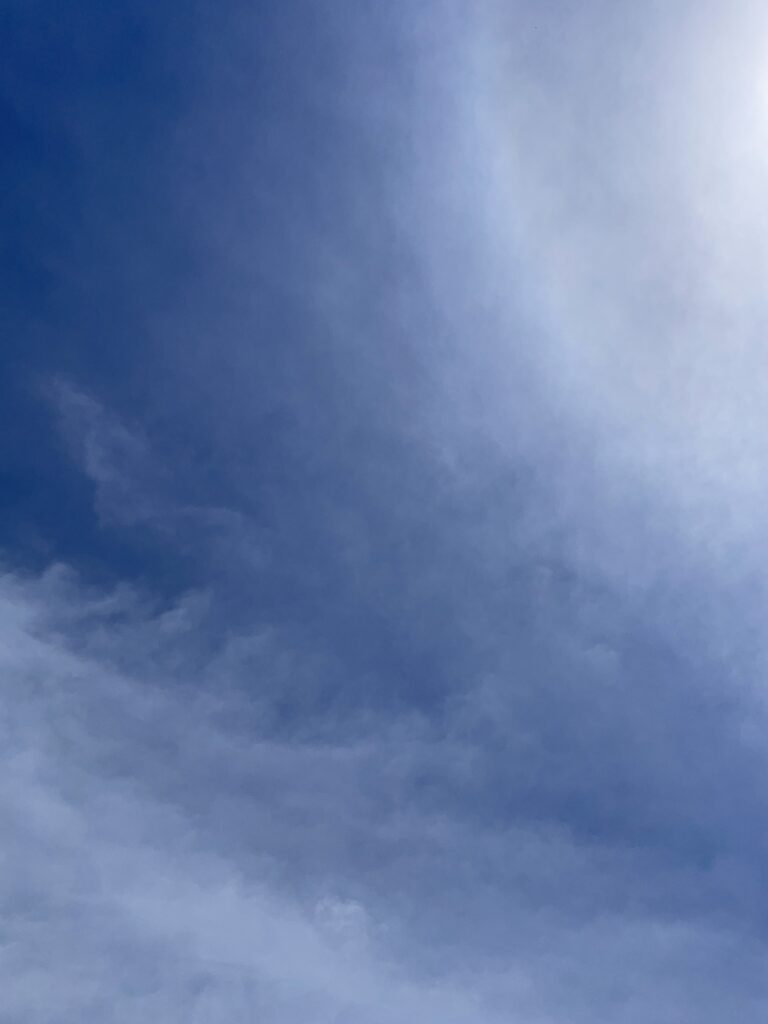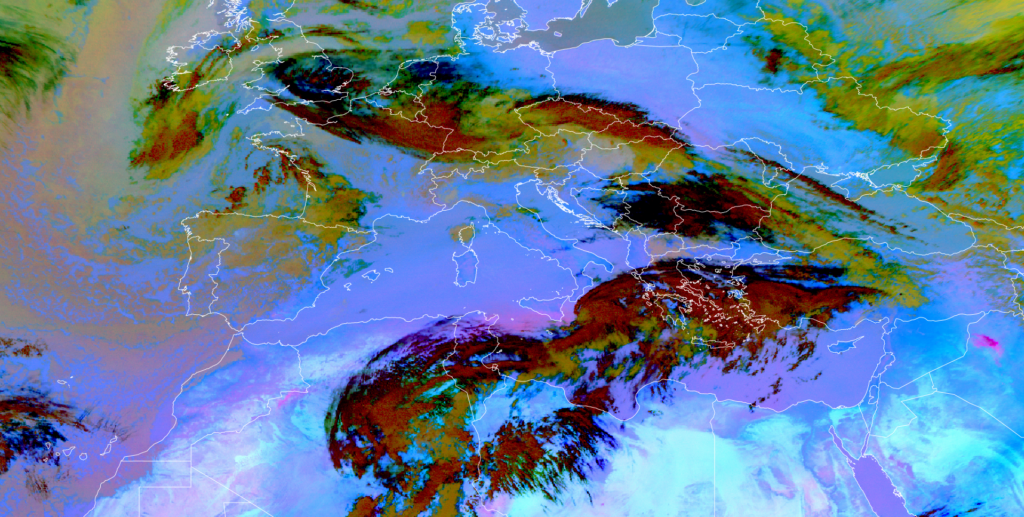Local Date
17 May 2024Local Time
10:03Location
Hackney Downs, LondonCountry or Territory
United KingdomContributor
Sasha EngelmannSatellite
NOAA-19Radio Callsign
Archive ID
Coordinates
Water and dust: these are the two prominent features in the satellite image I collected today. In the North, Lake Onega and Lake Ladoga are dark prints in the land near the now ice-free Gulf of Bothnia. Northern Europe is unusually cloud-free and seeing these lakes so clearly makes me feel uneasy, as if these waters are 'laid bare' by the sun. Another notable 'body of water' in the satellite image is unmarked on Google maps, but searching further reveals this is the Rybinsk Reservoir built by Russia in 1935. It was the largest man-made body of water at the time of its construction. The reservoir caused 150,000 people to be displaced and over 600 villages were submerged. In contrast, further South, there are other geographies and histories of immersion and displacement. The borders of sea and land are obscured in places by a current of dust making a soft streak from Tunis to the Southern tip of Sicily. News media are alert to this dust in different ways: an online publication called Gloucestershire Live warns readers that a 'scorching' Saharan dust plume is about to 'hit' the UK, and goes so far as to offer advice for how to 'properly clean your car' (hint: 'brushing' is not enough!). In the Swindon Advertiser, Saharan dust will 'sweep' across the UK. Yet in the Metro, these alerts to dust are dismissed with evidence from the Met Office: "their forecasts have no suggestion of a Saharan plume heading our way – good news for our cars which would otherwise end up coated in dust". The car is, once again, the primary surface on which we 'see' dust in European news media, and the object that needs most protection from it. When there are half-hearted gestures to the way dust can affect breathing for 'vulnerable' and 'asthmatic' people, these are rarely gifted the same emotional fervor for protection. There, scattered across the windscreen or front hood, dust speckles and glitters, forming 'galaxies' (as described by Nicola via Soph in an earlier weather note) to be 'properly' and thoroughly removed in the wash.
